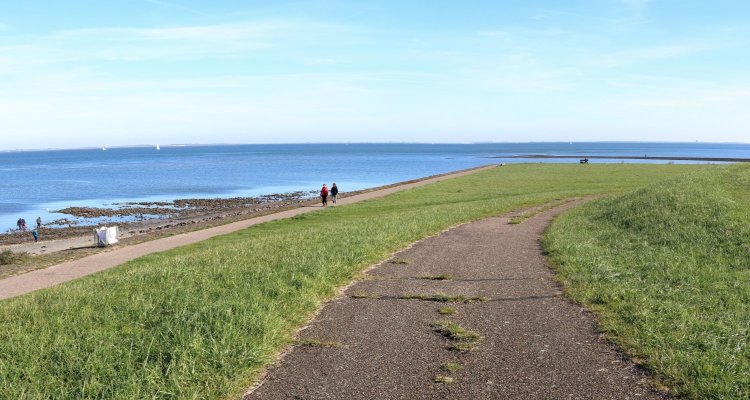
Project
Living Lab Hedwige-Prosperpolder
The Hedwige-Prosper Polder as a future-oriented experiment in managed realignment: integrating saltmarshes in water safety. Within this bigger project, we focus on the sub-project 'Nature-based design and maintenance of dikes'.
Prior to the reopening of the Hedwige-Prosperpolder in the Schelde estuary for nature restoration, we did experiments with the existing dike. We have been investigating technically how marshes restrict dike breaching, how realignment can foster marsh development and how dikes should be designed in this context.
Research challenges
The objective of the 'Nature-based design and maintenance of dikes' project is to develop innovative nature-based design and maintenance of dikes, providing ecological connectivity between dike and foreland, maintaining dike integrity and optimizing ecosystem services, by:
- Experimental study on the short-term impact of nature-based adaptations on the grass-covered seaward face
- Experimental study on the short-term impact of different regimes for the removal of debris from the adjacent salt- marsh
- Assessing the impact on safety by modelling
- Development of guidance on nature- based adaptation and maintenance of dikes
The overall objective of this project is to develop new planning, design and decision-making tools to help communities and the ecosystems they depend on adapt to the impacts of sea level rise and coastal flooding along the South Coast of British Columbia (Canada). A regional scale is necessary to understand and include boundary spanning dynamics in coastal adaptation, and to develop effective tools and frameworks to support solutions across shared ecosystems and shorelines, including frameworks for collaboration, integrated policies, design guidelines and coordinated governance arrangements.